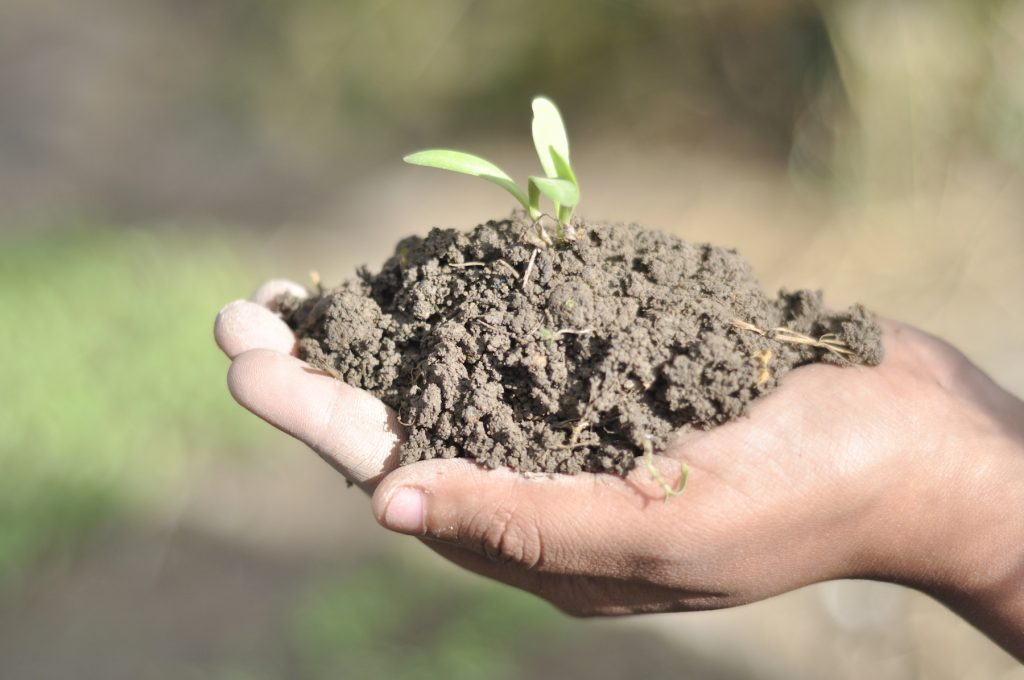
On December 5, we celebrate World Soil Day. This year the theme is “Be the solution to soil pollution.” Most of you may not have been aware that such a day even existed or perhaps even question the reason why the world even dedicates an entire day to celebrate soil. The authors of this article are soil scientists; we have devoted our professional careers to studying soil. Perhaps we are biased, but we use this opportunity to enlighten readers with a greater appreciation for the importance of this thin layer of our planet we call soil.
Humankind has a conflicting relationship with soil. In English, “dirt” and “dirty” are synonyms for unclean, calling a man or a woman “dirty” is a terrible insult. A baby’s dirty diapers are said to be “soiled.” But if we dig deeper into human consciousness, we find a different story.
For Hindus, the Panchtatva defines the universal laws of life. Everything, including life, is composed of five basic elements: Akash, space or sky; Vayu, air; Jal, water; Agni, fire; and Prithvi, earth or soil. In the Judeo-Christian tradition, the first two human beings on the planet were Adam and Eve. In Hebrew, the original language of the Bible’s Old Testament, the name Adam means “earth” or “soil” and Eve means “life.” These images and symbols portray that human life originally derived from soil.
It gets even deeper: The English terms “human” and “humanity” are rooted in the Greek word “humus,” the fertile black topsoil.
When we use the words “soil” and “dirt” as derogatory terms, we literally define ourselves as soil. Soil is important and here are a few reasons why.
Soil is absolutely critical for the survival of our species and of all living life on the planet. Over 90 percent of all food produced in the world comes from soil and a greater percentage of the world’s freshwater passes through soil.
Arguably, climate change is the greatest threat to our species. Despite mitigation efforts by the global community, soil is frequently forgotten. However, soil holds roughly two and a half times the amount of carbon held in the atmosphere and in all of the plants and animals combined.
Soil is also the greatest reservoir of biodiversity on the planet. In one pinch of soil, there are over 1 billion individual organisms and 1 million unique species, most of which we know almost nothing about. In one handful of soil, there are more living organisms than the total number of human beings that have ever walked on the planet. As all of our antibiotics have been derived from soil microorganisms, the secrets to fighting all kinds of diseases are just under your feet.
In Nepal, soil is deeply interrelated with culture. From birth to death, Nepalese use soil in many rituals: naming ceremonies, birthday celebrations, soiling on Ashar 15, local healing and medicine, etc.
The government of Nepal has set ambitious targets for increasing the levels of organic matter in soil. This is essential to ensure that the soils that have sustained Nepali civilization for centuries will continue to sustain future generations. We need to encourage farmers and land managers in Nepal to maintain terracing on steeply sloped lands to protect against soil erosion. It is also important to appropriately use agrochemicals, such as pesticides and inorganic fertilizers, to improve soil health and crop productivity.
Soil has been polluted by heavy metals, effluents from chemical industries, indiscriminate use of agrochemicals, urbanization without proper planning, networking of roads without considering the carrying capacity of the soil and other factors. So let’s not overlook the importance of soil. We need to value the cleansing properties of soil, particularly riverine soils, and prevent these areas from continuing as the dumping grounds and sewers of Kathmandu and other cities.
On this day, the day when we celebrate soil, take a moment to look under your feet and marvel at the beauty and complexity of soil.
If we take care of our soils, our soils will take care of us.
 Climate adaptation and mitigation
Climate adaptation and mitigation